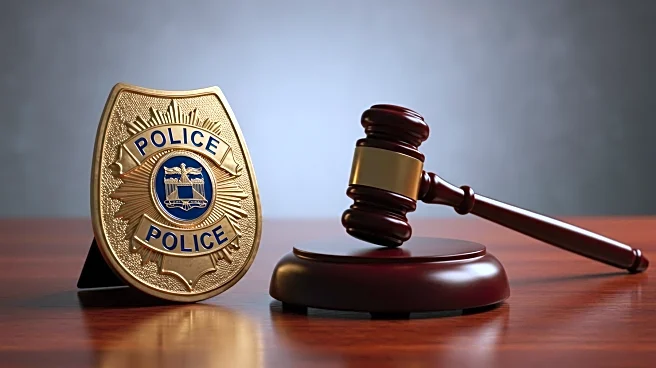What's Happening?
Attorney General Pam Bondi has appointed Terry Cole, the head of the Drug Enforcement Administration (DEA), as Washington's emergency police commissioner. This decision follows President Trump's unprecedented move to take control of the Washington police department. Bondi's directive grants Cole the powers of police chief, requiring the Metropolitan Police Department to obtain his approval before issuing orders. This appointment has sparked controversy, with the capital city's attorney general labeling Bondi's action as unlawful, potentially leading to a legal battle. Cole, who has recently been confirmed by the U.S. Senate as the DEA's leader, has a long history in law enforcement, including 22 years at the DEA and previous roles in Virginia and New York State.
Why It's Important?
The appointment of Terry Cole as emergency police commissioner in Washington is significant due to its implications for local governance and federal authority. This move by the Trump administration challenges the autonomy of the District of Columbia's police department, potentially altering the chain of command and affecting local law enforcement policies. The legal dispute arising from this decision could have broader implications for federal intervention in local matters, setting a precedent for future actions. Stakeholders such as local government officials, law enforcement agencies, and civil rights groups may be impacted by changes in policing directives, particularly concerning immigration enforcement and sanctuary policies.
What's Next?
The legal battle over the appointment of Terry Cole as emergency police commissioner is likely to unfold, with the District of Columbia Attorney General Brian Schwalb opposing the directive. Schwalb's memo insists that local officers should follow existing orders over Bondi's, emphasizing that the Trump administration lacks the authority to alter the police department's chain of command. This dispute may lead to court proceedings to determine the legality of Bondi's actions and the extent of federal power over local law enforcement. The outcome could influence future federal interventions in local governance and impact the relationship between federal and local authorities.









